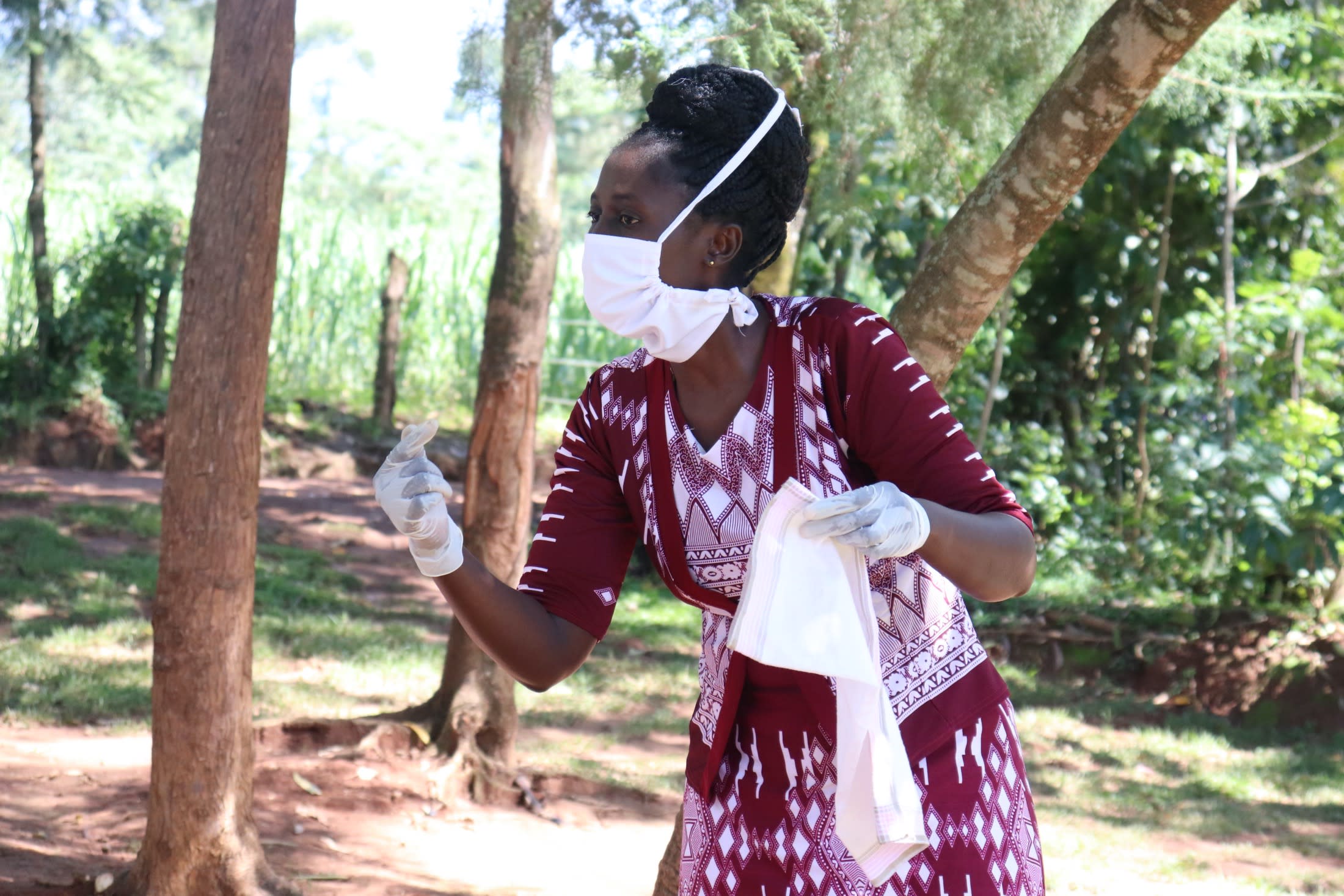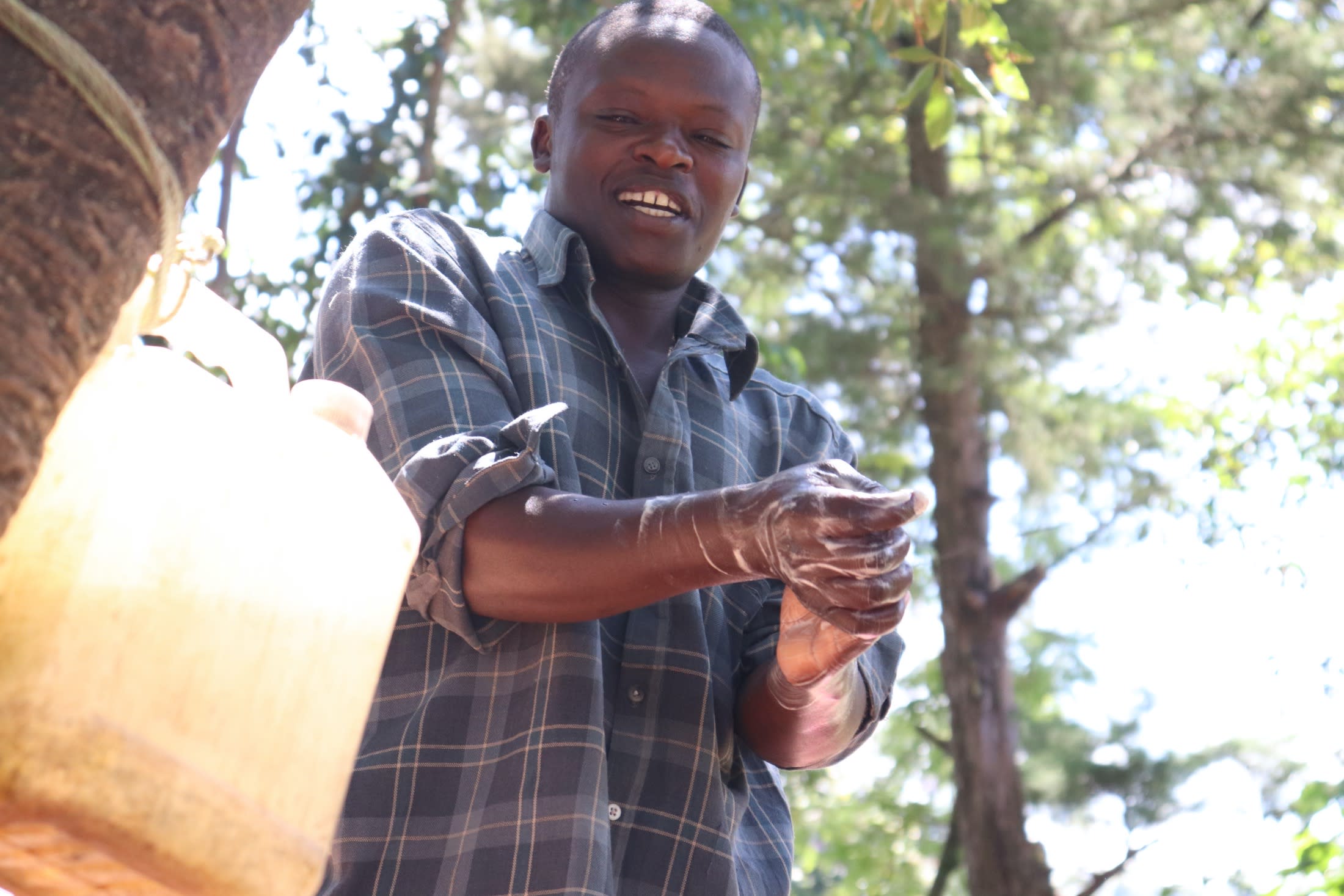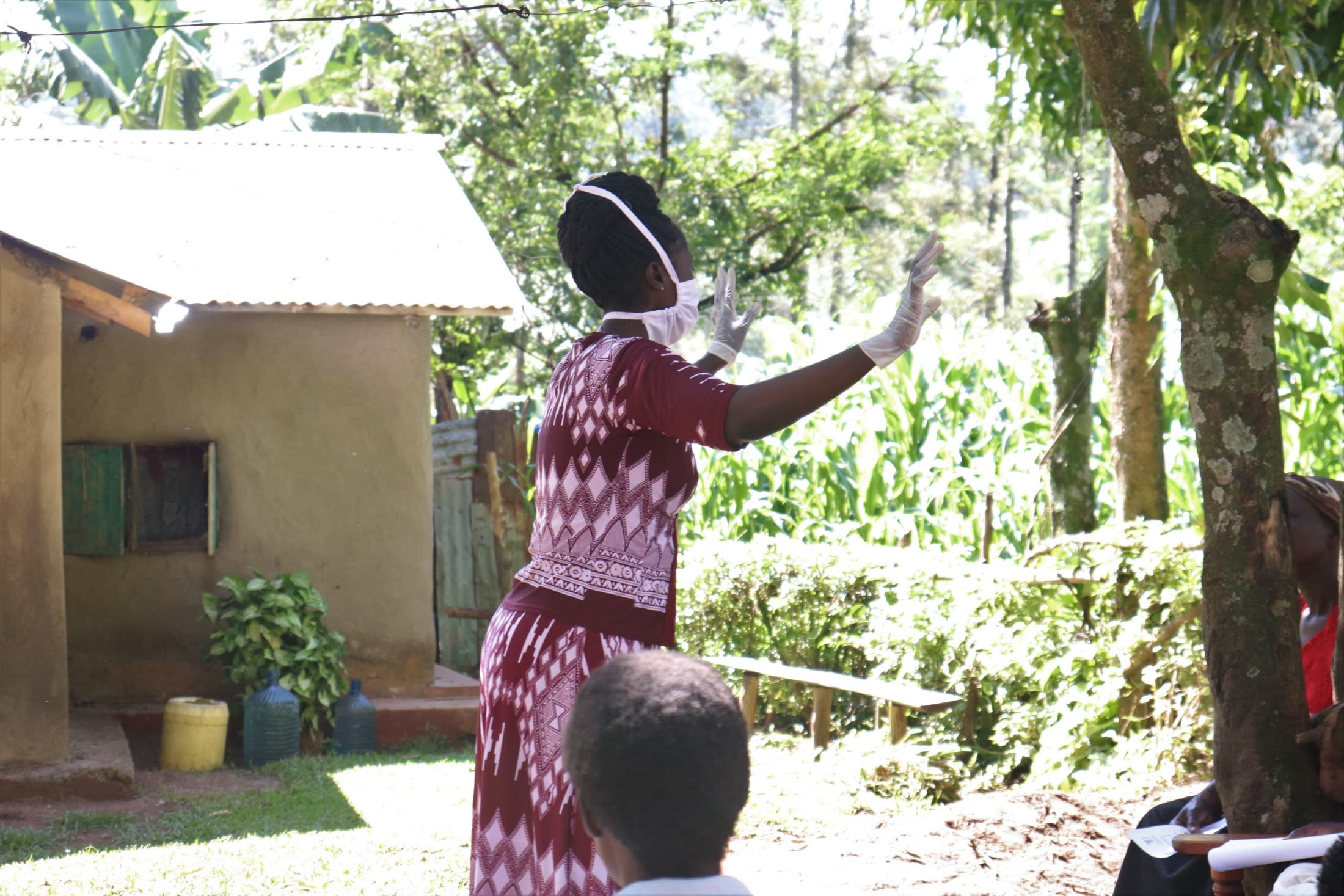This project is a part of our shared program with Western Water and Sanitation Forum (WEWASAFO). Our team is pleased to directly share the below report (edited for clarity, as needed).
Background Information
This unprotected spring is located in Lutani Village, Handidi sub-location, Lubao location, Kambiri Ward, Shinyalu Constituency of Kakamega County. The spring is serving 25 households totaling 285 people out of which 165 are female and 120 are male. The community members use this spring for domestic and farming purposes.
Justification
There are many factors contaminating this spring. People have to step into the water as they fetch it, animals are kept near, and many other activities take place near the spring. For example, the sugarcane crop that grows near the spring is sprayed with various chemical fertilizers and pesticides, which run into the water during rainy weather. This contamination has resulted in numerous cases of stomachaches and waterborne diseases.
Since there are pools of stagnant water around the spring, malaria cases have been rampant. "Malaria to my children has become the order of the day, I never finish a month before my children are infected," says Mama Erick. Typhoid and Diarrhea are also a big problem for the community. Mrs Henry says, "I wasted Ksh 6500 treating typhoid in my family this year, if I had reared poultry I would be very far economically."
Due to lack of awareness about water pollution, many people continue to wash clothes, bathe, and water animals at the spring.
The sanitation situation in this community is critical, with many latrines in disrepair. The women say they fear their children might fall through the big holes in the floors, and thus let them find bushes for relief.
A few people are aware of the proper sanitation practices, such as using dish racks and clotheslines, but the majority lacks this awareness. No hand-washing facilities were seen around the latrines.
The community members learned about the organization during the protection of Bweselese spring. They are more than willing to contribute to this project in any way possible, and are looking forward to a more hopeful future.
Water and Sanitation Management Committee Training
WEWASAFO held training from September 29th to 30th with a total number of 15 attendees out of which eight were female and seven were male. These community members received information relevant to ensuring proper management and maintenance of Henry Jose Ongulo spring. Participants also received relevant skills on proper governance, record keeping and funds collection and management.
The workshop equipped participants to:
1. Be equipped with relevant skills for operation and maintenance of the water source
2. Facilitate acquisition and development of management and leadership skills for communities to be self-reliant
3. Enhance community capacity to effectively monitor and supervise the water catchment area and related health education activities in the village
4. Be equipped with skills to collect funds and keep records for operation and maintenance of water facilities
5. Understand channels of water pollution and prevent this from reaching the water catchment area
The facilitator used role-plays to encourage people to contribute their time and resources to improving their environment. After, community members agreed to contribute many materials needed for the protection and sanitation project.
The group also agreed on those in the community who would most benefit from sanitation platforms.
Beyond training, the group members will also have the following responsibilities:
- Acquire all needed materials for spring protection
- Acquire materials needed for the beneficiaries' sanitation platforms
- Fence in the spring
- Own and manage the spring
- Provide unskilled labor
- Formulate rules to govern the spring
- Raise funds to maintain the spring
- Keep records of the spring, monitor and evaluate activity
They worked together to estimate the community's level of water consumption, brainstormed ways to protect their water catchment area, thought of sources of pollution, and listed waterborne illnesses. With this information, the group was able to think of various ways to prevent bad health and hygiene, such as: always using latrines, cooking food thoroughly, covering food, washing hands with water and soap, and boiling and treating water.
The village elder, Mr. Henry Jose, closed the training by encouraging participants to go into the community and share what they learned.
Community Health Workers Training
WEWASAFO also invited 14 more community members to a training session held from October 1st to 2nd. These classes included the hygiene practices included above. However, these participants are not expected to carry out the same responsibilities as the committee.
Results of the project:
Spring Protection
Protection of Henry Jose spring located in Lutani Village, Handidi sub location in Lubao location of Kambiri Ward within Shinyalu constituency in Kakamega County is complete and now in use by the community members. The spring beneficiaries use the water for domestic, irrigating the farms and watering their animals.
This spring is protected and it is no longer open to contamination. The community members are now happy that they no longer have to step in the water as they fetch which has really helped in reducing the contamination rate.
After the trainings conducted by the Wewasafo wash team on operation and maintenance together with sanitation and hygiene at the spring, the community members are now aware that farming activities done very close to the water catchment area lead to contamination of the water point. With that in mind, they promised to avoid farming activities near the water source. They are now confident that they are accessing clean safe drinking water from the spring.
Cases of continuous stomachache and out breaks of water borne diseases like typhoid and diarrhoea are expected to reduced tremendously. Also Malaria cases in the households living near the spring will reduced since the community members have take an initiatieve to create cut off drainages to avoid breeding grounds for malaria.
Since the community members are now aware of water pollution, the water sanitation management group has come up with the rules and regulations governing the spring. Beneficiaries are not allowed to wash clothes, water animals or bathe at the spring but instead should do it at their homes so as to avoid contamination of the water.
Household Sanitation Platforms
The sanitation platforms (cement slabs for safe latrine construction) for beneficiaries around the spring have been cast, installed and are now in use. Beneficiaries admitted that the slabs are safe even for the elderly and children use. They no longer worry about children falling into the latrines.
After the training conducted by Wewasafo wash team for the beneficiaries, many people are now aware of the proper hygiene practices such as having dish racks, bathing rooms, latrines and clotheslines.
The community members are happy and very satisfied with the project and they are passing their sincere gratitude to The Water Project and their donors through Wewasafo for changing their lives.
 Protected Spring
Protected Spring
 Rehabilitation Project
Rehabilitation Project































